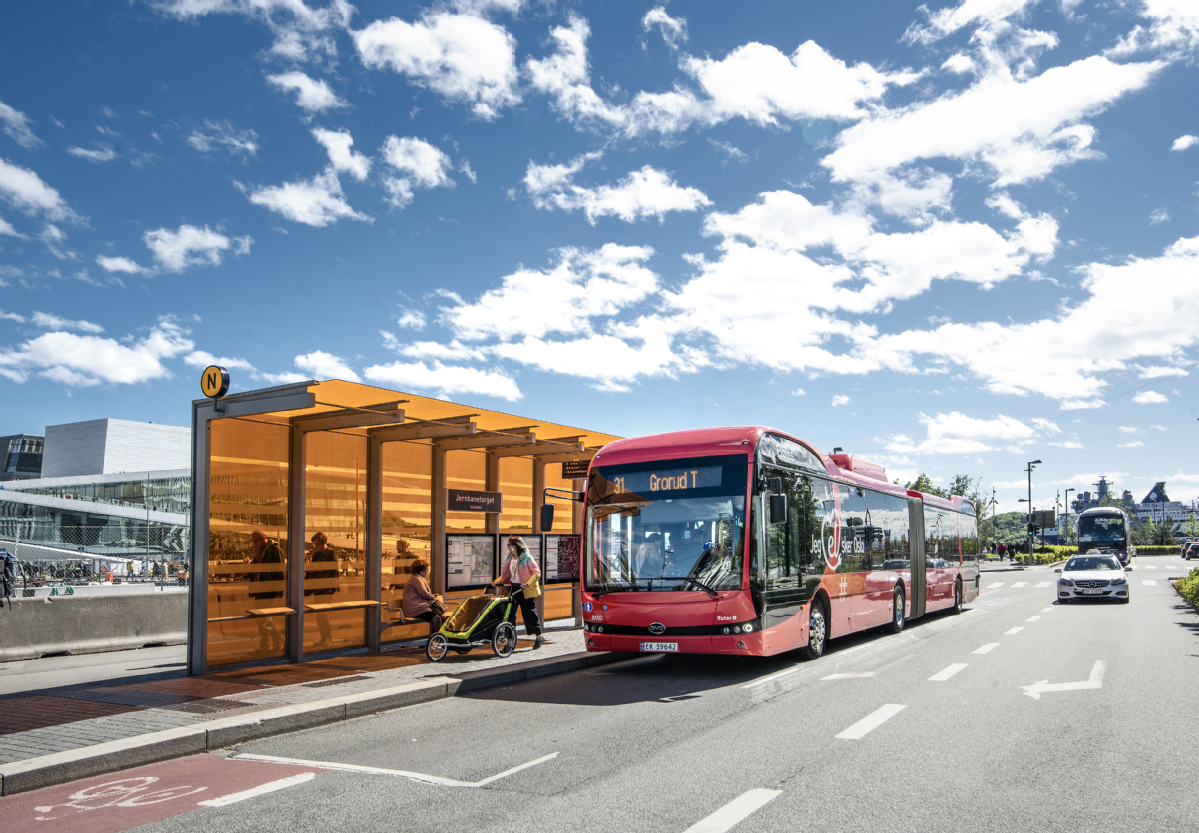Companies remain buoyant about investing in Europe
By CHEN YINGQUN | CHINA DAILY | Updated: 2020-11-18 07:39

Main strategy
In 1998, BYD, a major Chinese manufacturer of new energy vehicles, established its European subsidiary in Rotterdam, the Netherlands, focusing on providing new energy products and services, including vehicles, rechargeable batteries and solar panels.
Isbrand Ho, managing director of BYD Europe, said the company's main development strategy in the European market, where great importance is attached to carbon emissions, has focused on promoting its electric buses.
In 2017, BYD established its first electric bus and truck factory in Hungary, with investment of more than 30 million euros ($35.5 million). The following year, it set up its second such factory in France, with investment of 10 million euros.
"To date, BYD has received orders for more than 1,400 pure electric buses (new energy vehicles featuring a streamlined exterior, lightweight body, fuel efficiency, extra-low emissions and electric driving system), and the company takes up about 20 percent of the European market," Ho said.
"Our pure electric bus footprint covers more than 100 cities, including Amsterdam, London, Brussels and Turin, in 20 countries and has provided them with green solutions."
He added that BYD Europe has more than 500 employees, with over 50 percent of them locals. The company also has a research and development center and a localized R&D team in the Netherlands.
Ho said that in 1998, BYD encountered difficulties when it started to develop a pure electric vehicle business in Europe, as the company was not well recognized on the continent at the time and it was hard to expand the market.
However, in recent years, with increasingly stringent emission standards being applied in many European countries, the use of new energy vehicles for public transportation has accelerated, providing the company with more opportunities.
Despite the pandemic, BYD has tackled the difficulties and delivered products and services on time, including putting its pure electric buses on the roads of Glasgow in the United Kingdom and also in Spain and Germany.
The company is also due to launch its pure electric trucks in the European market, including 7.5-metric-ton light trucks, 19-ton heavy trucks and yard tractors, and 2.6-ton panel vans.
"Green development is the common goal of China and the European Union. Europe's green recovery plans and China's Belt and Road Initiative will also create more opportunities for companies from both sides to work together," Ho said.
He also called for a fairer, transparent and open market environment in Europe to enable Chinese companies such as BYD to provide more quality products to consumers.
Raymond Wang, a partner at global consultancy Roland Berger, said investment by Chinese companies in Europe will continue, but in a different way.
"A few years ago, this investment was more in the form of mergers and acquisitions," he said. "However, as Europe has become an important market for Chinese companies going overseas, investment in Europe has become more operations-related-for example, building factories, logistics centers, or R&D and development centers-which create more local job opportunities and benefit local society."
To attract more Chinese investment when the pandemic ends, he said the first thing European countries need to do is ensure the outbreak has been fully contained. Then, European investment by Chinese companies will naturally follow.
"Chinese companies should better learn about European culture and style, but on the other hand, Europe needs to introduce Chinese culture and style for both parties to work together," Wang said.
Jon Geldart, director-general of the United Kingdom Institute of Directors, which represents more than 25,000 business leaders in the UK, said he believes Chinese companies' enthusiasm for investment in Europe will continue, as there are still many good opportunities across continental Europe and in the UK.
"The only concern will be the ability to physically complete the practical face-to-face aspects of any deal, given the continued travel restrictions," he said.
"However, the pandemic is global, so at this level Chinese investors need to ask themselves where they should invest, not only from an attractive cost perspective but also from a security and strength of economy perspective."
Europe remains more attractive than numerous other locations, as its capital markets and culture are more solid and stable, Geldart added.
He said the UK, which is negotiating a Brexit deal with the EU, has a great opportunity to open its doors to more global investment.
"Maintaining an open dialogue with China is important. Interactions on a business-to-business level should be strengthened further to improve understanding. Better understanding generates increased trust and deeper relationships, which in turn will produce mutually beneficial investment," he added.
























